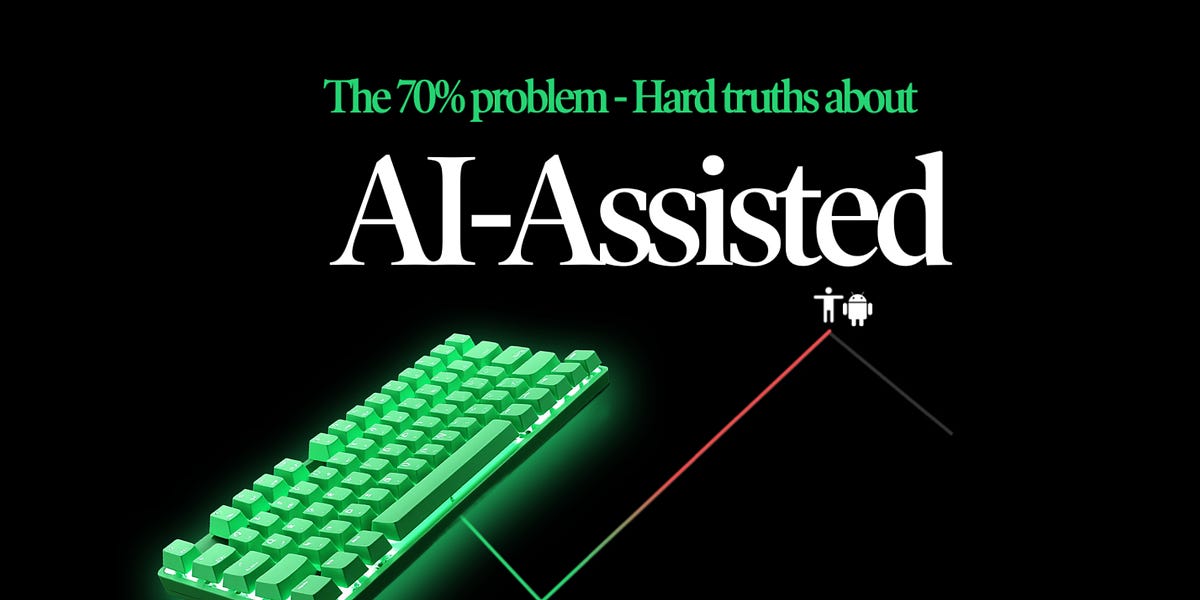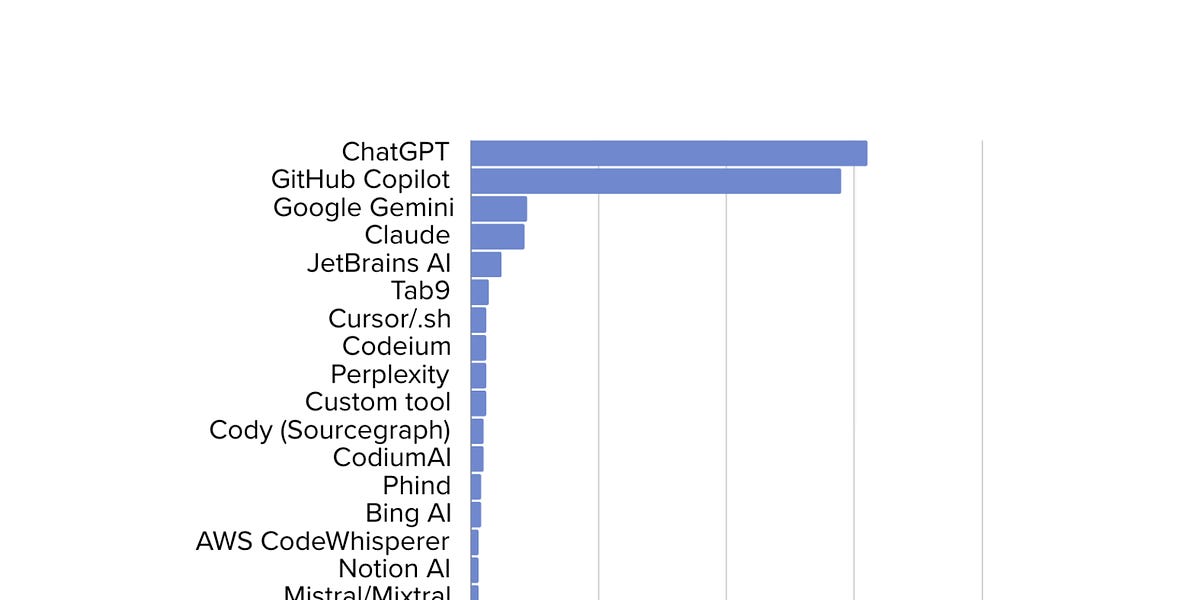The end of classical computer science is coming, and most of us are dinosaurs waiting for the meteor to hit, says Matt Welsh.
"I came of age in the 1980s, programming personal computers like the Commodore VIC-20 and Apple IIe at home. Going on to study computer science in college and ultimately getting a PhD at Berkeley, the bulk of my professional training was rooted in what I will call 'classical' CS: programming, algorithms, data structures, systems, programming languages."
"When I was in college in the early '90s, we were still in the depth of the AI Winter, and AI as a field was likewise dominated by classical algorithms. In Dan Huttenlocher's PhD-level computer vision course in 1995 or so, we never once discussed anything resembling deep learning or neural networks--it was all classical algorithms like Canny edge detection, optical flow, and Hausdorff distances."
"One thing that has not really changed is that computer science is taught as a discipline with data structures, algorithms, and programming at its core. I am going to be amazed if in 30 years, or even 10 years, we are still approaching CS in this way. Indeed, I think CS as a field is in for a pretty major upheaval that few of us are really prepared for."
"I believe that the conventional idea of 'writing a program' is headed for extinction, and indeed, for all but very specialized applications, most software, as we know it, will be replaced by AI systems that are trained rather than programmed."
"I'm not just talking about CoPilot replacing programmers. I'm talking about replacing the entire concept of writing programs with training models. In the future, CS students aren't going to need to learn such mundane skills as how to add a node to a binary tree or code in C++. That kind of education will be antiquated, like teaching engineering students how to use a slide rule."
"The shift in focus from programs to models should be obvious to anyone who has read any modern machine learning papers. These papers barely mention the code or systems underlying their innovations; the building blocks of AI systems are much higher-level abstractions like attention layers, tokenizers, and datasets."
This got me thinking: Over the last 20 years, I've been predicting AI would advance to the point where it could automate jobs, and it's looking more and more like I was fundamentally right about that, and all the people who poo-poo'd the idea over the years in coversations with me were wrong. But while I was right about that fundamental idea (and right that there wouldn't be "one AI in a box" that anyone could pull the plug on if something went wrong, but a diffusion of the technology around the world like every previous technology), I was wrong about how exactly it would play out.
First I was wrong about the timescales: I thought it would be necessary to understand much more about how the brain works, and to work algorithms derived from neuroscience into AI models, and looking at the rate of advancement in neuroscience I predicted AI wouldn't be in its current state for a long time. While broad concepts like "neuron" and "attention" have been incorporated into AI, there are practically no specific algorithms that have been ported from brains to AI systems.
Second, I was wrong about what order. I was wrong in thinking "routine" jobs would be automated first, and "creative" jobs last. It turns out that what matters is "mental" vs "physical". Computers can create visual art and music just by thinking very hard -- it's a purely "mental" activity, and computers can do all that thinking in bits and bytes.
This has led me to ponder: What occupations require the greatest level of manual dexterity?
Those should be the jobs safest from the AI revolution.
The first that came to mind for me -- when I was trying to think of jobs that require an extreme level of physical dexterity and pay very highly -- was "surgeon". So I now predict "surgeon" will be the last job to get automated. If you're giving career advice to a young person (or you are a young person), the advice to give is: become a surgeon.
Other occupations safe (for now) against automation, for the same reason would include "physical therapist", "dentist", "dental hygienist", "dental technician", "medical technician" (e.g. those people who customize prosthetics, orthodontic devices, and so on), and so on. "Nurse" who routinely does physical procedures like drawing blood.
Continuing in the same vein but going outside the medical field (pun not intended but allowed to stand once recognized), I'd put "electronics technician". I don't think robots will be able to solder any time soon, or manipulate very small components, at least after the initial assembly is completed which does seem to be highly amenable to automation. But once electronic components fail, to the extent it falls on people to repair them, rather than throw them out and replace them (which admittedly happens a lot), humans aren't going to be replaced any time soon.
Likewise "machinist" who works with small parts and tools.
"Engineer" ought to be ok -- as long as they're mechanical engineers or civil engineers. Software engineers are in the crosshairs. What matters is whether physical manipulation is part of the job.
"Construction worker" -- some jobs are high pay/high skill while others are low pay/low skill. Will be interesting to see what gets automated first and last in construction.
Other "trade" jobs like "plumber", "electrician", "welder" -- probably safe for a long time.
"Auto mechanic" -- probably one of the last jobs to be automated. The factory where the car is initially manufacturered, a very controlled environment, may be full of robots, but it's hard to see robots extending into the auto mechanic's shop where cars go when they break down.
"Jewler" ought to be a safe job for a long time. "Watchmaker" (or "watch repairer") -- I'm still amazed people pay so much for old-fashioned mechanical watches. I guess the point is to be pieces of jewlry, so these essentially count as "jewler" jobs.
"Tailor" and "dressmaker" and other jobs centered around sewing.
"Hairstylist" / "barber" -- you probably won't be trusting a robot with scissors close to your head any time soon.
"Chef", "baker", whatever the word is for "cake calligrapher". Years ago I thought we'd have automated kitchens at fast food restaurants by now but they are no where in sight. And nowhere near automating the kitchens of the fancy restaurants with the top chefs.
Finally, let's revisit "artist". While "artist" is in the crosshairs of AI, some "artist" jobs are actually physical -- such as "sculptor" and "glassblower". These might be resistant to AI for a long time. Not sure how many sculptors and glassblowers the economy can support, though. Might be tough if all the other artists stampede into those occupations.
While "musician" is totally in the crosshairs of AI, as we see, that applies only to musicians who make recorded music -- going "live" may be a way to escape the automation. No robots with the manual dexterity to play physical guitars, violins, etc, appear to be on the horizon. Maybe they can play drums?
And finally for my last item: "Magician" is another live entertainment career that requires a lot of manual dexterity and that ought to be hard for a robot to replicate. For those of you looking for a career in entertainment. Not sure how many magicians the economy can support, though.
The end of programming - Matt Welsh
#solidstatelife #genai #codingai #technologicalunemployment


